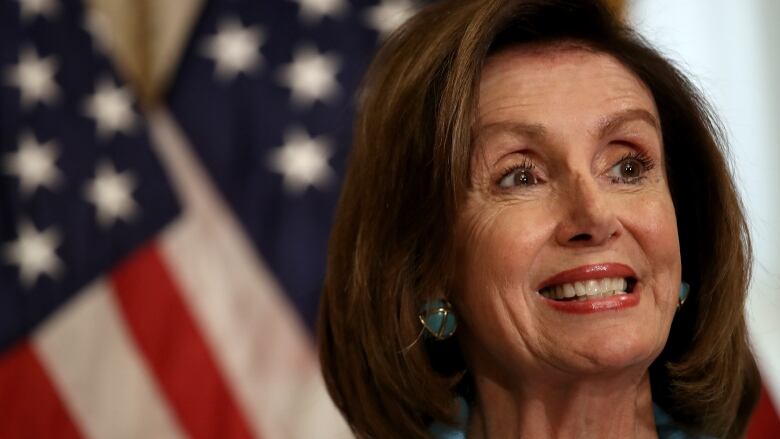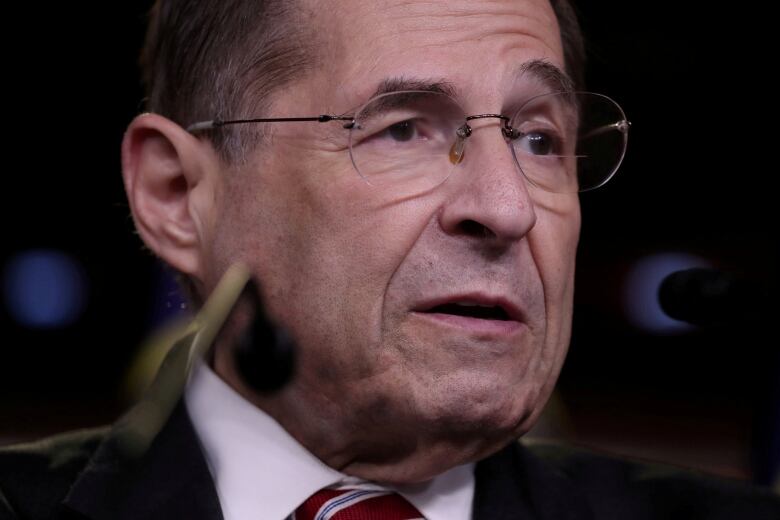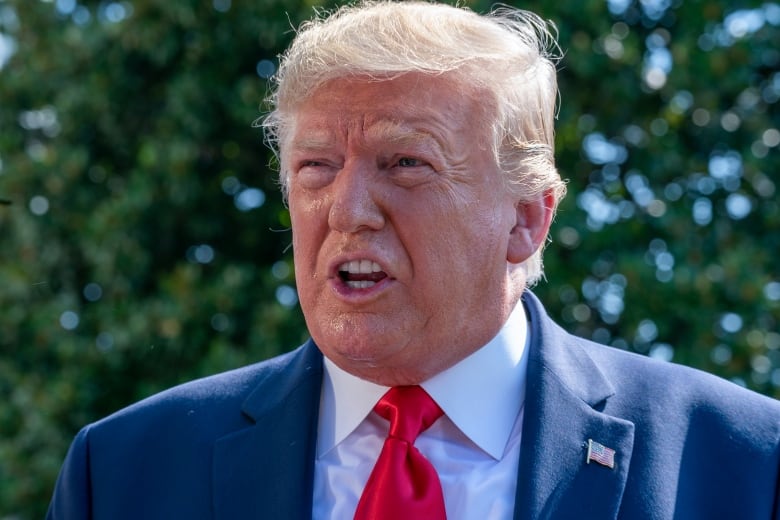Q&A: Are the Democrats starting impeachment, or not?
Recent messages coming from House Democrats on impeachment have been decidedly confusing

House Speaker Nancy Pelosi has said Democrats need to wait for court decisions before they decide whether to approve articles of impeachment. At the same time, the chairman of the House judiciary committee, New York Rep. Jerrold Nadler, said Thursday that what his committee is doing now amounts to "formal impeachment proceedings" and that Democrats will make a final decision by the end of the year.
So are Democrats starting impeachment, or not? And will President Donald Trump ultimately be removed from office?
Sort of. And almost certainly not.
What is the status of impeachment?
Talk of impeachment has escalated in recent months after Trump began fighting subpoenas from Congress. Democrats had originally said they wanted to start by investigating Trump and doing their own review of former special counsel Robert Mueller's report. But that has proved to be impossible, because people Mueller interviewed have defied subpoenas on Trump's orders.
The House judiciary committee this week filed a lawsuit in federal court to force the testimony of one of the Mueller report's key witnesses, former White House counsel Donald McGahn. And last month, the panel filed a petition to obtain secret grand jury testimony underlying the Mueller report. Both lawsuits made the argument that the committee needs to hear from witnesses and know more about Mueller's findings to decide whether to recommend impeachment to the full House.
What does Pelosi say?
Pelosi's tone has shifted somewhat in recent months. Mindful of moderates in her caucus who will need to win re-election next year, Pelosi said in March that Trump was "just not worth it" and "I'm not for impeachment." Since then, Mueller has released his report detailing Trump's attempts to influence his investigation and said he could not exonerate him. Pelosi says now that she wants to see the outcome of the court cases and get more information from the Trump administration.
"If we have a case for impeachment that's the place we will have to go," she said in July, while making it clear that she doesn't believe the House has yet made that case.
What does Nadler say?
Nadler, who represents ultra-liberal New York City, has become more outspoken on the need for impeachment in recent weeks. At the end of July, he said he believes Trump "richly deserves" it.
Those comments reflect the sentiments of most judiciary committee Democrats, who have been ahead of the rest of their caucus in pushing for impeachment.

Recently, Nadler and other Democrats on the committee have laid out a new strategy: saying that impeachment proceedings have already started, with or without a formal vote to begin them.
"This is formal impeachment proceedings," Nadler said on CNN Thursday evening, adding that he hoped by the end of the year that the panel would decide whether to vote to recommend articles.
Are they on the same page?
Pelosi has an entire caucus to consider, and many of the more moderate members want to stay far away from impeachment proceedings. The Democrats who sit on the judiciary committee including some of the most liberal members of the House have been ready to start the process for quite some time and have put pressure on the speaker.

Still, lawmakers close to the matter say the two sides are essentially saying the same thing that they are doing the work of impeachment and a final decision will be made later in the year.
"I think we're unified on this question," said Rep. Jamie Raskin,a Democraticmember of the committee.
How does the courtcase factor in?
The idea that the committee is already conducting impeachment is also helpful to the Democratic lawsuit. Courts could give greater weight to the committee's requests if lawmakers make a plausible case that the information is needed to exercise their constitutional duty of impeachment.
"The judiciary committee is conducting an investigation to understand the scope and extent of misconduct by President Trump, and that investigation includes consideration of whether the judiciary committee should exercise its Article I powers to recommend articles of impeachment," the case reads.
Does the Democraticcaucus supportstarting impeachment?
About half of them do. According to an Associated Press tally, 119 House Democrats support calls for the beginning of an impeachment inquiry one more than half of the caucus. Not all of them would support an impeachment vote at this point.
Those calls appear mostly symbolic, for now, as Nadler has declared the committee is already doing the work of impeachment.
So could Trump really be removed from office?
It's extremely unlikely. Even if the full House were to approve charges against the president, it's up to the Republican Senate to hold an impeachment trial.

A two-thirds vote in the Senate would be required to convict and remove Trump from office. That's an outcome that Democrats acknowledge is improbable.
What are the political considerations?
Many Democrats are torn. They know impeachment could be politically treacherous and cost them some support from independent voters in the 2020 election. But they also believe that Trump has committed the "high crimes and misdemeanours" that the Constitution lays out and don't want to set a precedent for inaction.
Raskin, a former constitutional law professor, says the political worries are "not an illegitimate concern," but that there are others who worry that Trump will claim exoneration if the committee doesn't act.
"None of this is clairvoyant," Raskin said.












_(720p).jpg)


 OFFICIAL HD MUSIC VIDEO.jpg)
.jpg)



























































































